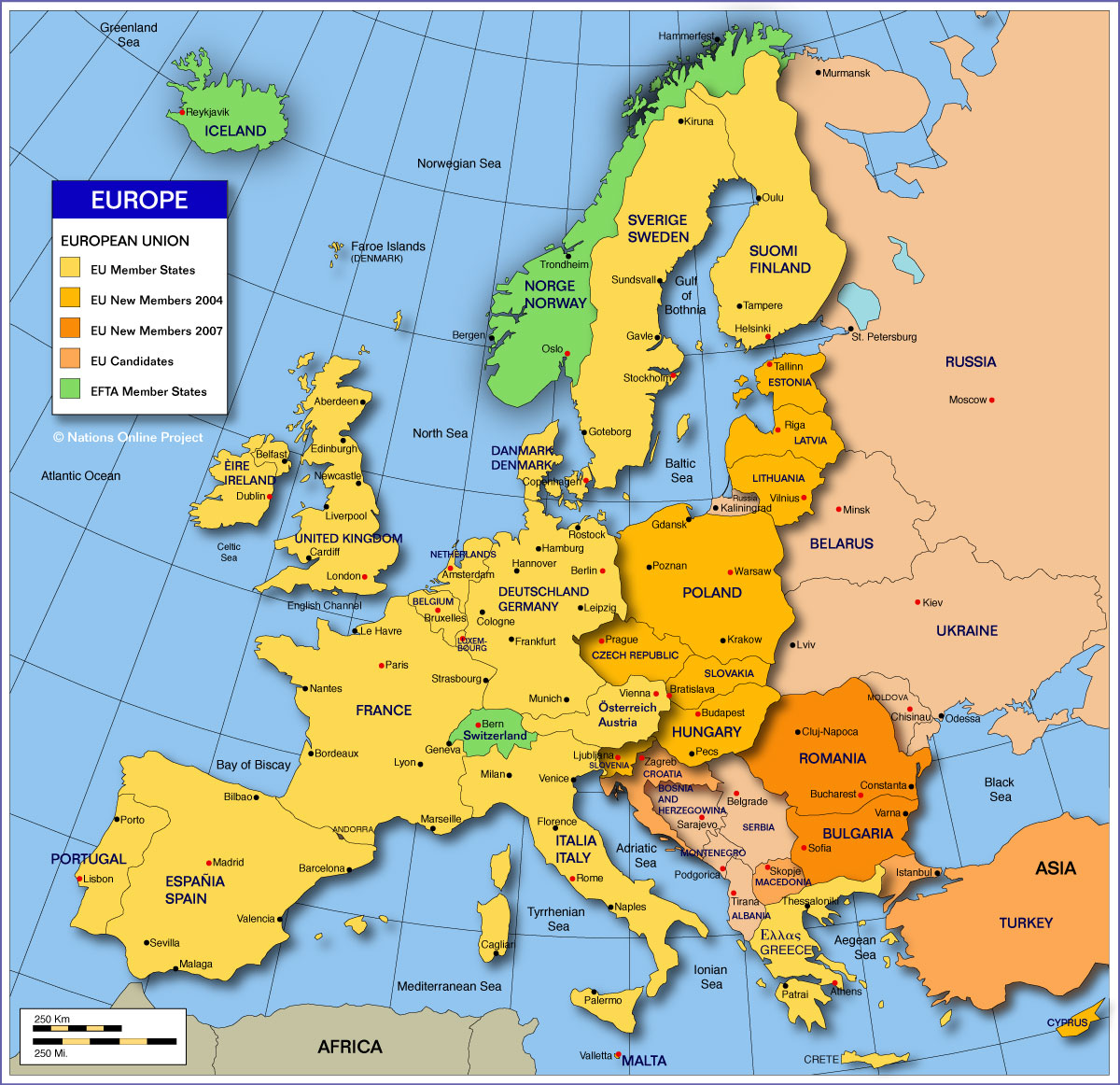
Source: nationsonline.org
By virtually every sub-category measure, the Eurozone did worse than the EU as a whole: capital goods production fell by -2.6% in the Eurozone compared with -1.8% in the EU; non-durable goods fell by -1.6% and -1.5%; and durable goods production fell by -0.9% in the Eurozone but rose by 0.6% in the EU. Energy production rose by 6.9% in the Eurozone and 5.7% in the EU.
Portugal, Germany, and Italy led the decline in industrial production, with drops of -6.5%, -2.0%, and -1.9%, respectively. UK industrial production was exactly flat according to Eurostat.
Year-over-year the decline in industrial production in the Eurozone totaled -6.2% and -4.5% in the EU. The largest year-over-year drops were posted in Italy (-9.2%), Spain (-8.3%), and Portugal (-7.6%).
Industrial production has fallen in five of the past six months in the Eurozone and in the EU as a whole. In the UK, industrial production fell year-over-year by -1.7% in April, the sixth decline in a row.
Even Latvia, which is often held up as the poster child for the success of austerity, saw industrial production fall by -1.2% month-over-month although its annual production did rise by 3.8% year-over-year. However the March year-over-year rise was 8.5% and in 4 of the last 6 months Latvia’s production rose by at least 7.5%.
The takeaway from all this is that austerity measures, especially in the Eurozone and the UK, have not improved production numbers. US stock futures indexes are down this morning as are European equities markets. The primary cause for the decline is likely the high yields forced on Italian bonds this morning, but the industrial production numbers did nothing to soften that blow.
Paul Ausick
Essential Tips for Investing: Sponsored
A financial advisor can help you understand the advantages and disadvantages of investment properties. Finding a qualified financial advisor doesn’t have to be hard. SmartAsset’s free tool matches you with up to three financial advisors who serve your area, and you can interview your advisor matches at no cost to decide which one is right for you. If you’re ready to find an advisor who can help you achieve your financial goals, get started now.
Investing in real estate can diversify your portfolio. But expanding your horizons may add additional costs. If you’re an investor looking to minimize expenses, consider checking out online brokerages. They often offer low investment fees, helping you maximize your profit.
Thank you for reading! Have some feedback for us?
Contact the 24/7 Wall St. editorial team.



